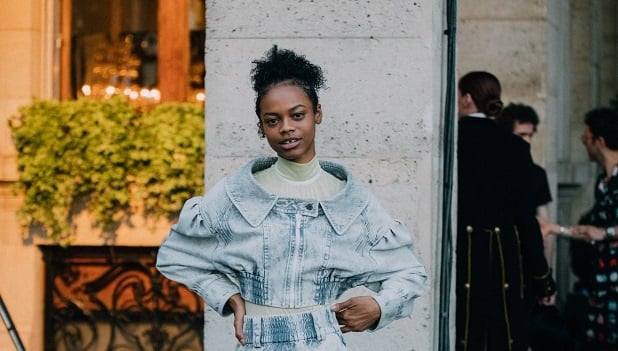
Earlier this year U.S. reporter and prestigious writer, Krithika Varagur wrote a controversial exposé that made everyone in beauty sit up and listen. Called 'The Skincare Con', she took a deep-dive into the world of serums, peptides, acids, and the other products we are 'meant' to be using on our faces.
As they slowly drain our pockets in the quest for that flawless skin we have been promised.
She writes, "But all of this is a scam. It has to be. Perfect skin is unattainable because it doesn’t exist. The idea that we should both have it and want it is a waste of our time and money. Especially for women, who are disproportionately taxed by both the ideal of perfect skin and its material pursuit."
With an increasing obsession with perfection, we pine after, and pay lots of money for an ideal that might not be within anyone's reach.
She argues that "Like other human organs, skin has withstood millions of years of evolution without the aid of tinctures and balms."
READ MORE: What should you use to 'fix' your pigmentation - microneedling, peels or mainstream beauty products?
And in the last few years there has been no 'flawless skin' or 'perfect skin' skincare regime promise punted more heavily that that of the bazillion step (okay, like ten, but still!) beauty routine that is Korean Skincare. Or K Beauty.
There is a blog called Black Girl Gone K Beauty, but aside from her as far as I can see, the whole discourse of K Beauty sees black women largely left out. Korean Skincare, in however much it promises to deliver blemish free skin, promotes the idea of porcelain skin. So, not just brighter, but also whiter.
Marie Claire Asia did an article on Korean women's skincare secrets, particularly how they attain this complexion. One woman, hailed for her 'perfect skin' by the magazine, is asked about her secrets. She goes on to list an extensive bevy of products she uses as part of her multi-step routine, like 'whitening toner' and 'whitening eye serum', and the article then continues to say that "whitening products are just the tip of the iceberg for Korean women. From rejuvenating face masks to frequent use of sunblock, facial massages to hydrating night creams, these ladies go to enviable lengths to attain milky skin."
The article notes that the pressure on Korean women to have flawless skin is incredible, saying South Korea "is a culturally monolithic and highly patriarchal society" where white, porcelain/"glass skin" is constantly punted on subway walls lined with plastic surgery ads - a R180 billion booming beauty industry.
READ MORE: What is "glass skin"?
So who does K Beauty seem to be targeted at?
The Cut notes that black women are particularity put off by K Beauty, specifically because of its marketing, which blatantly excludes women of colour, while, the products and routine cater to those affected by hyperpigmentation, often a concern among women of colour.
For example, local dermatologist, Dr. Nomphelo Gantsho recommends patients with hyperpigmented skin conditions use enzymatic scrubs, and a long-form skincare routine which closely mimics K Beauty.
Local beauty blogger and vlogger Cynthia Gwebu says "I’ve actually never tried it. Can’t say a concrete reason as to why. I don’t even know how much of K Beauty is available locally."
While Women's Health's beauty ed, Zinhlezonke Zitch Zikalala says, "I have never tried K Beauty, purely because I don't think blacks are the target market. Well that's just assuming. It's inclusive of women with fairer skin, not necessarily us with melanin. "
And beauty expert Lerato Seuoe says "No I haven't tried K Beauty, primarily because I did feel like black women weren't considered in the making of the products. It's a trend that's targeted at the Asian market or lighter skin tones."
Kara Brown, a black woman from the U.S. says she feels K Beauty was definitely not designed with women like her in mind. Writing for Shondaland.com, she says there were "subtle and obvious clues" that this routine might not be for her.
She says that recommended products in this routine were pre-fixed by 'whitening', which made her worry she might be accidentally bleaching her skin. Yet, with some research she found that in K Beauty, 'whitening' is often used to mean 'brightening', to describe luminosity or glow.
Similarly, Siraad Dirshe writes for Racked, saying that with all the hype that has surrounded K Beauty over the last few years, she's never ever seen darker skin included when talking about this routine. "In all my internet and IG trolling the only images I came across were of women who looked nothing like me."
But Essence argues that black women and other women of colour shouldn't disregard the K Beauty routine because they are not represented in the marketing of this routine. They motivate this by saying that one has to remember where the products and routine originated, one of the world's most homogeneous countries.
Like Kara, Siraad concluded that it's not so much about the rather obvious fact that K Beauty wasn't designed with women of colour in mind, but the fact that it happens all too often.
Queen Latifah fronted a CoverGirl campaign, and now Anok Yai will be fronting beauty campaigns for Estée Lauder, but examples of black beauty ambassadors or products designed specifically with black women in mind, are too rare.
READ MORE: The next Naomi Campbell? Anok Yai has arrived
Sign up to W24’s newsletters so you don't miss out on any of our hot stories and giveaways.




 Publications
Publications
 Partners
Partners










